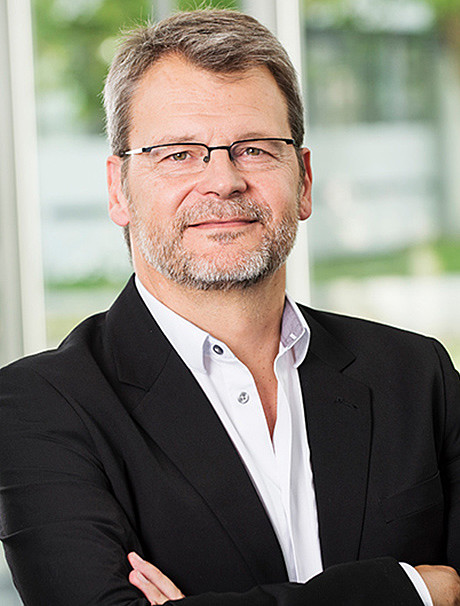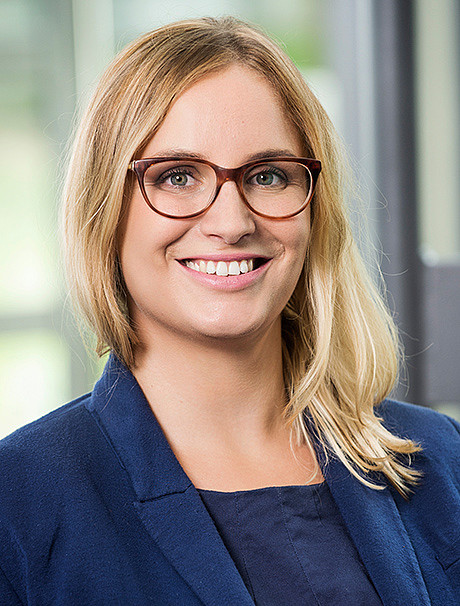Published on February 09, 2021
How science can reach society
Authorial contribution by Jens Fahrenberg and Anke Weigel
As a technology transfer unit, we have been dealing with the question of how we can more clearly demonstrate the importance of inventions and innovations for civil society for years. However, the past year in particular has made it exceedingly clear how important it is to present scientific working methods and findings in a way that is understandable, comprehensible and adds value. Our core business is the commercialization of these research results, for example by licensing industrial property rights and the associated know-how to companies or by supporting the spin-off of companies owned by scientific employees. Even here, it is important to communicate the desired effect in addition to the financial income: In the best case, the research result will secure or even create new jobs, contribute to a strong business location in Germany and thus also increase the quality of life of the citizens.
Technology transfer in competition with science?
Combining this development with freedom for research and teaching seems difficult at first. Professors and public research employees are naturally not primarily concerned with the commercialization of their research and should not be prevented from doing their work for activities in the innovation process. However, more and more scientific employees now see the topic of transfer as an integral part of their work. The scientific institution and its technology transfer unit then have the task of supporting activities in the innovation process in such a way that no conflicts of objectives arise, for example in measuring the success of scientific performance. This affects the culture of the scientific community as a whole: If publications in scientific media are delayed by applications for property rights or legal reviews of contracts, this is counterproductive. So this is where research management and its services come in - we need to work swiftly and dynamically in exchange to prevent such conflicts from arising in the first place.
Work in dialogue
The Corona pandemic provided an unprecedented demonstration of how complex science is viewed in public discourse. The trial-and-error mode of operation, the validation of previous results, the open but fact-based discussion about the interpretation of data - parts of society negated this approach and were inclined toward the "easy" solutions. A large part of the people, however, demand what science can offer: Developing facts, recommending decisions based on those facts, and yet always checking to see if the facts have changed and the decisions were sustainably correct. Taking different points of view into account and incorporating differentiated perspectives on a topic are the first steps toward transferring this knowledge to business and society. In practice, this can sometimes be done in a very grassroots way. KIT implements this, for example, in real laboratories such as "Quartier Zukunft - KIT Finds City" and "Test Field for Autonomous Driving". Thus, innovative science can be experienced in the middle of the city. Apart from these large-scale projects, technology transfer can also do a lot to strengthen the dialog between science, industry, and society.
Bringing people together, in every dimension
This work starts on a small scale: for example, by helping researchers to think about the intended use and exploitation options immediately after they report their invention. By offering them a platform and a framework where they can present their work outside the scientific community. KIT Technology Transfer does this, for example, with the RESEARCH TO BUSINESS technology exchange, via events of the KIT Business Club, or the NEULAND Innovation Day. A different audience, different impulses and questions: such exchange opportunities help to bring research work and societal needs together and into dialog.
With an innovation-friendly mindset at the science institution, even extraordinary flagship projects with direct visibility for citizens can be implemented. Just such a focal point with charisma has recently been created in Karlsruhe's city center. The newly founded TRIANGEL innovation center is located on Karlsruhe's central shopping boulevard and is intended as an open meeting place for very different groups of people: Here, students are to meet industry representatives, young founders are to meet citizens who just drop in because they missed the public transport. While waiting for the Coffee to Go, anyone can take a look at current exhibits and innovative prototypes and, after a few minutes, perhaps take away not only a hot drink but also inspiring knowledge.
An even stronger symbiosis is lived in the ZEISS Innovation Hub, which was built at the gates of KIT Campus North in cooperation between KIT and its strategic corporate partner and recently officially opened. Here, for example, the KIT spin-off Nanoscribe with its meanwhile more than 80 employees finds space and excellent equipment. The company, now the world market leader in 3D printing on the nanometer scale, was founded in 2007 by four KIT scientists. ZEISS became a shareholder early on. The entire building breathes this spirit of collaborative innovation. Here, founders have unbureaucratic access to space and exchange opportunities, and student groups work on their extracurricular projects.
Transfer needs courage to take risks
None of these initiatives would have become reality without the willingness to leave the usual paths of the scientific enterprise, to invest time, money, energy and persuasion, and thus to take a certain risk. Public science is tax-funded and must use these public funds responsibly and in the best interests of society. In the funding of scientific topics, expenses are transparently presented and intensively scrutinized, for example through the program-oriented research of the Helmholtz Association. In technology transfer, the same standards are needed to ensure that permanent tasks, such as intellectual property management, are carried out in a comprehensible manner. Other projects - especially those designed for more interaction with citizens - are not part of the routine repertoire of science management. Nonetheless, they need room to grow and the individual support of funders and switchers from within the institution. This is worth making a commitment to: Science in the sense of civil society needs the practical support of a well-connected, creative and service-oriented technology transfer.
About the author: Jens Fahrenberg
Dr.-Ing. Jens Fahrenberg has been responsible for technology transfer since 2002, which is embedded in the Innovation and Relations Management (IRM) service unit at KIT. In addition, he has various tasks and functions in the regional and national environment of knowledge and technology transfer, for example as a board member of TransferAllianz e.V..

About the author: Anke Weigel
Anke Weigel is in charge of technology marketing at the department of innovation and relations management at KIT. Her topics are the marketing of research results as well as innovation communication and innovation culture at the research institution.




comments about this article
No comments